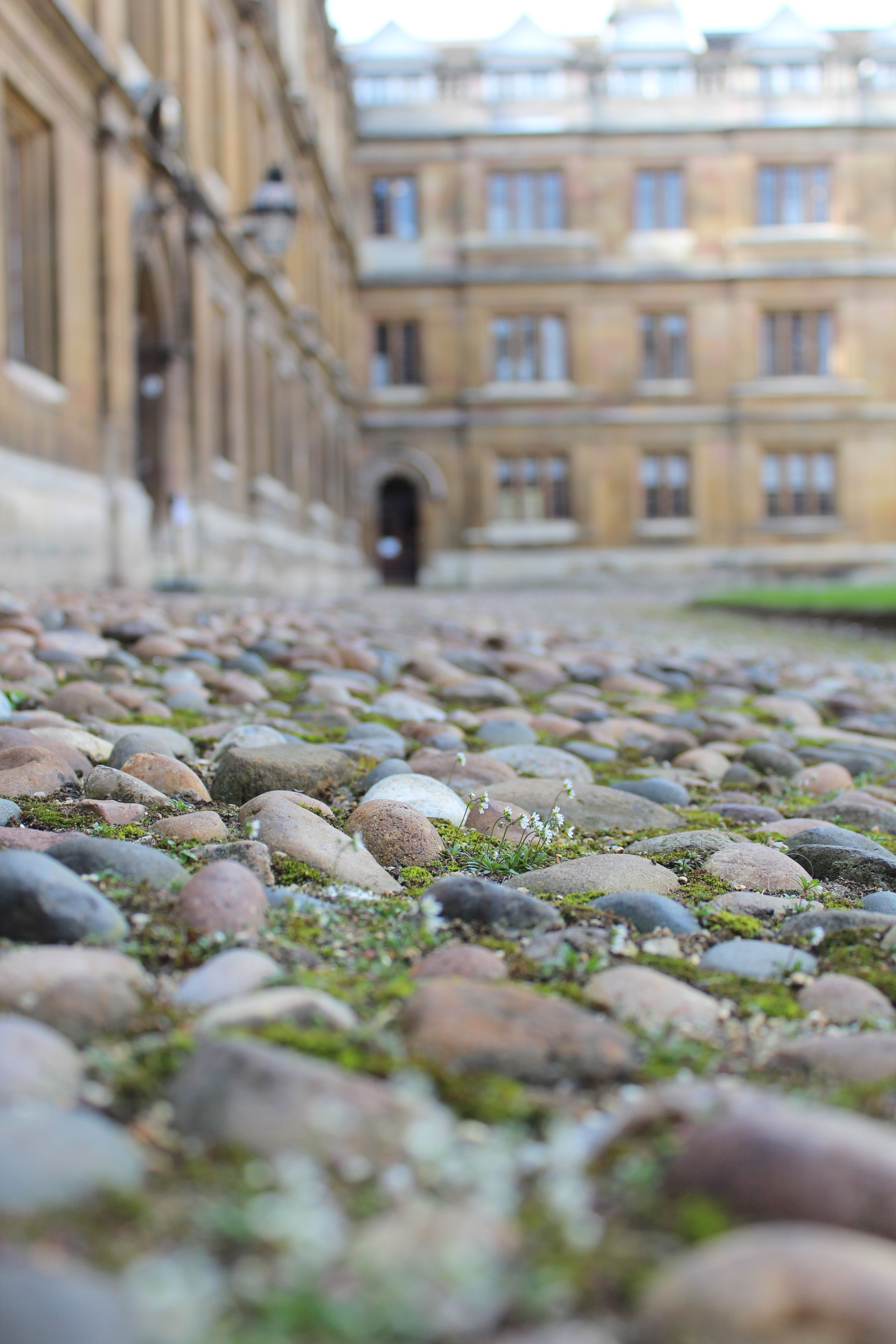Mental health matters
As the demand for mental health services increases across the country, we take a look at some of the ways Clare is working to meet these challenges and promote mental wellbeing amongst its members.

Helen James is Head of the Clare College Health and Wellbeing Centre, where she works with specialist Mental Health Nurse, Esther Manning, who joined the practice in 2020 to help support Clare’s students. The uncertainties of the pandemic have created an increase in demand for these services, as students face the challenges of different forms of teaching, further lockdown and restrictions to normal College life.
Describe your role within the College, and why it is important.
Helen: I’ve been in the role of College Nurse for 13 years, and during this time the job
has evolved significantly. By background, I’m a Registered General Nurse, but I’ve undertaken a lot of additional mental health and counselling training. This summer I will finish my qualification as a counsellor. I think it’s a vital role because we have such a broad understanding of all the services available, College-wide, University-wide and within the NHS, for both mental health and general health support. With that breadth of knowledge, we can provide students with choice; if we are not able to offer support ourselves, we will know the right service to signpost or refer them on to.
Esther: I’m a Registered Mental Health Nurse, and I’ve been working in different settings, privately and for the NHS, for over twenty years. My role is to work alongside Helen, and we complement each other very well. The College recognises the importance of good mental health and the increase in demand during the pandemic. Our aim is to support students early – relapse prevention and looking for warning signs are key for us. If we can sustain good mental health practices throughout a student’s career in the College, then we are not only supporting that individual in the short term but also furnishing them with tools and skills that can be taken through to later life.
Helen: Training is important to equip us for the role. We have a bespoke training programme through the Cambridge College Nurses Association that covers topics that affect the student population, such as trans and other LGBTQ issues. Anything to do with mental health or general health can come through our door, so it is very important to keep our skills updated. Due to COVID, we had to move our services online within just a couple of weeks. One good thing to come out of the pandemic is that we’ve really honed our remote working skills and we have completed training that equips us to be able to offer consultations remotely.
What mental health challenges are students in the UK currently facing?
Esther: During the pandemic, we’ve seen students presenting with increased feelings of isolation, lack of confidence and struggles with their home environment. They can feel quite detached from the College at times, because they aren’t being visually stimulated by the environment and the scenery. Self-directed online learning takes a lot of motivation and willpower, which is really challenging and causes problems like Zoom fatigue. We’ve seen as well that pre-existing mental health conditions that may have been manageable before lockdown – for example OCD, eating disorders, depression and anxiety – have escalated for many.
Helen: A lot of problems can be linked back to a feeling of loss of control. Thankfully, the College has recognised this and increased the mental health provision we are able to offer. We’re now both working full-time, all year round, which is so helpful as it means we’re able to support students outside of term too.

Do you think the pandemic has changed the way that we think about mental health?
Esther: I feel it may be too early to say. Once we start coming out of this, I think there’s going to be a huge aftermath. Some of the sense of collaboration that we felt
as a nation at the start of the pandemic seems to have gone, as people have become fed up and bored over time.
There are huge campaigns surrounding mental health awareness happening at the moment – charities like Mind are doing some very positive things – but I think we will have to wait and see what the real effects are.
Helen: I think the pandemic has raised awareness regarding mental health. Awareness in Cambridge has generally been very good thanks to campaigns across different areas. But we’ve now seen the government do a lot of work in relation to mental health awareness and COVID. I agree with Esther that we’re going to see a tidal wave of effects later on. People have been incredibly frustrated, and there has been a lot of projection of those frustrations.
What strategies do you use to look after your own mental health?
Esther: I think first and foremost we have to accept that we all struggle with our mental health. I try to remember the phrase ‘it’s okay not to be okay’. I often give myself permission to feel a bit down in the dumps, taking care not to dwell on things for too long.
It’s so important to tap into the things that are meaningful, that are enjoyable. For me, I love having long hot baths in the evening, reading, enjoying some trashy TV that you don’t have to concentrate too much on. I try to keep in contact with friends and family to feel more human. We have to give ourselves that permission to practice self-care, because a lot of times we can feel it’s a bit self-indulgent or selfish. We might feel that other people are struggling more than us. But there’s no competition or scale of how we’re struggling – we’re all in very different boats. So, for me, it’s just about being mindful of that and tapping into positive coping mechanisms.
Helen: I’m also a lover of baths! I exercise five times a week, that’s a really important part of my routine, and love to go on long walks. We bang on about self-care to the students all the time – they laugh about it sometimes, but it is so important!
We also have clinical supervision, which is very important for us in our role as health professionals.
What do you enjoy about your role?
Helen: It’s a privilege to work with students. We have an opportunity to support them in developing skills that can make a real difference in their lives, which can be so rewarding.
Esther: Absolutely!
Mindfulness at Clare
Dr Rachael Harris, Fellow and Director of Studies in Asian and Middle Eastern Studies, leads a termly eight-week mindfulness course, available to all Clare students for free. She writes about the effects of the course and how mindfulness can be a powerful tool for improving mental health.

For the last 10 years I have been running mindfulness courses for Clare students. In that time I have taught about 175 undergraduates and graduates, roughly 1 in 8
of the student population, with demand increasing in lockdown.
‘Mindfulness’ has become an umbrella term for a particular approach to looking after the mind, but it specifically refers to the skill of engaging with our experience of the present moment as it is, without judging or telling ourselves stories about it. It treats the mind as a set of processes and qualities, rather than addressing the content of thoughts. We can look after our minds as we look after our bodies, learning how to nourish the states we like and how not to get caught up on the difficult ones. Meditation is a tool for this: it has a direct impact on one’s state of mind, and helps us to see what is going on more clearly. Like physical exercise, you don’t have to be
‘good’ at it to gain the benefits.
The approach originated in Buddhism and has been adapted by psychologists to help protect against depression, anxiety and other forms of distress.
Sadly, students today are suffering ever-increasing levels of mental ill-health, with very high levels of agitation and stress. Mindfulness does not address major mental health issues, but provides tools to calm agitation, boost resilience and improve the quality of life; in other words, it improves mental health, sometimes in tandem with counselling. Under lockdown, many students
have struggled with a sense of monotony and demotivation, and mindfulness can help them to treat each day, each moment, as new. At first, participants learn ways to manage their anxiety or low mood, but gradually, if they continue, their underlying emotional patterns can start to shift.
The course consists of seven weekly 75-minute sessions, currently held remotely. The sessions start and finish with meditation practices. In between, there is discussion of students’ experiences of meditation and of mindfulness in relation to various aspects of their work and lives. An eighth session consists of one-to-one ‘conferrals’ about how to adapt mindfulness to work best for participants individually, and to help them make their meditation more effective.
I have been struck by how quickly many students start to benefit from the course, often noticing a difference in the first couple of weeks. Looking at the mind in a different way can have a big impact in itself. For example, it helps many students to see more clearly how they relate to their work, and to lessen or overcome difficulties like procrastination and perfectionism. Many people who complete the course are still applying what they learnt months or years later. Some practise meditation regularly and even those who don’t may use the techniques when needed, such as for calming exam nerves.
“You’ve helped me develop life-long skills to deal with stress and worry. It’s made such a difference already.”
After completing the course, a few, perhaps 5%, continue to develop these practices in a deeper way through Buddhism or ongoing mindfulness groups. Mindfulness does not suit everyone. But for most people it offers benefits, and for some it is life-transforming.
For more information see www.clare.cam.ac.uk/Mindfulness-at-Clare/

